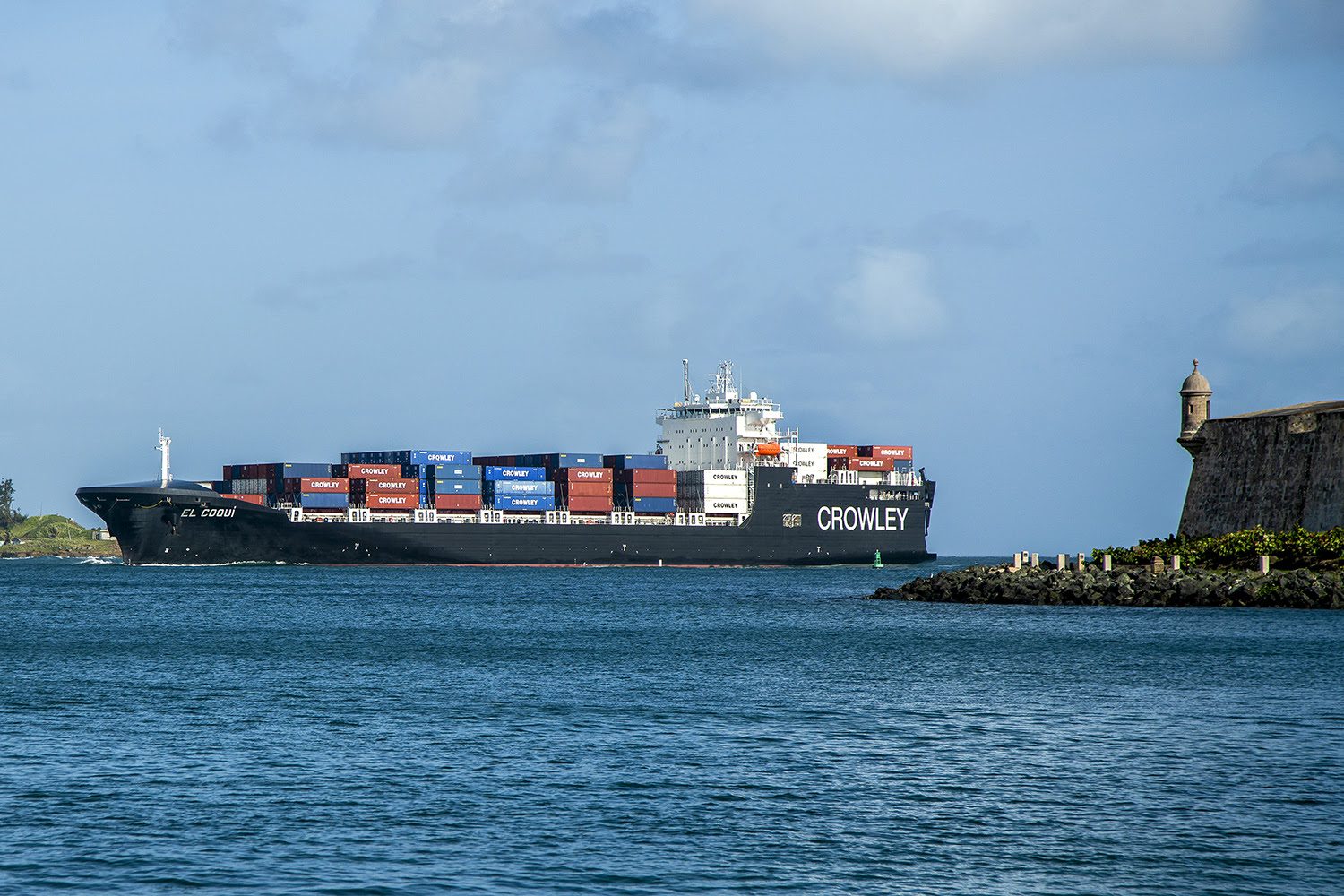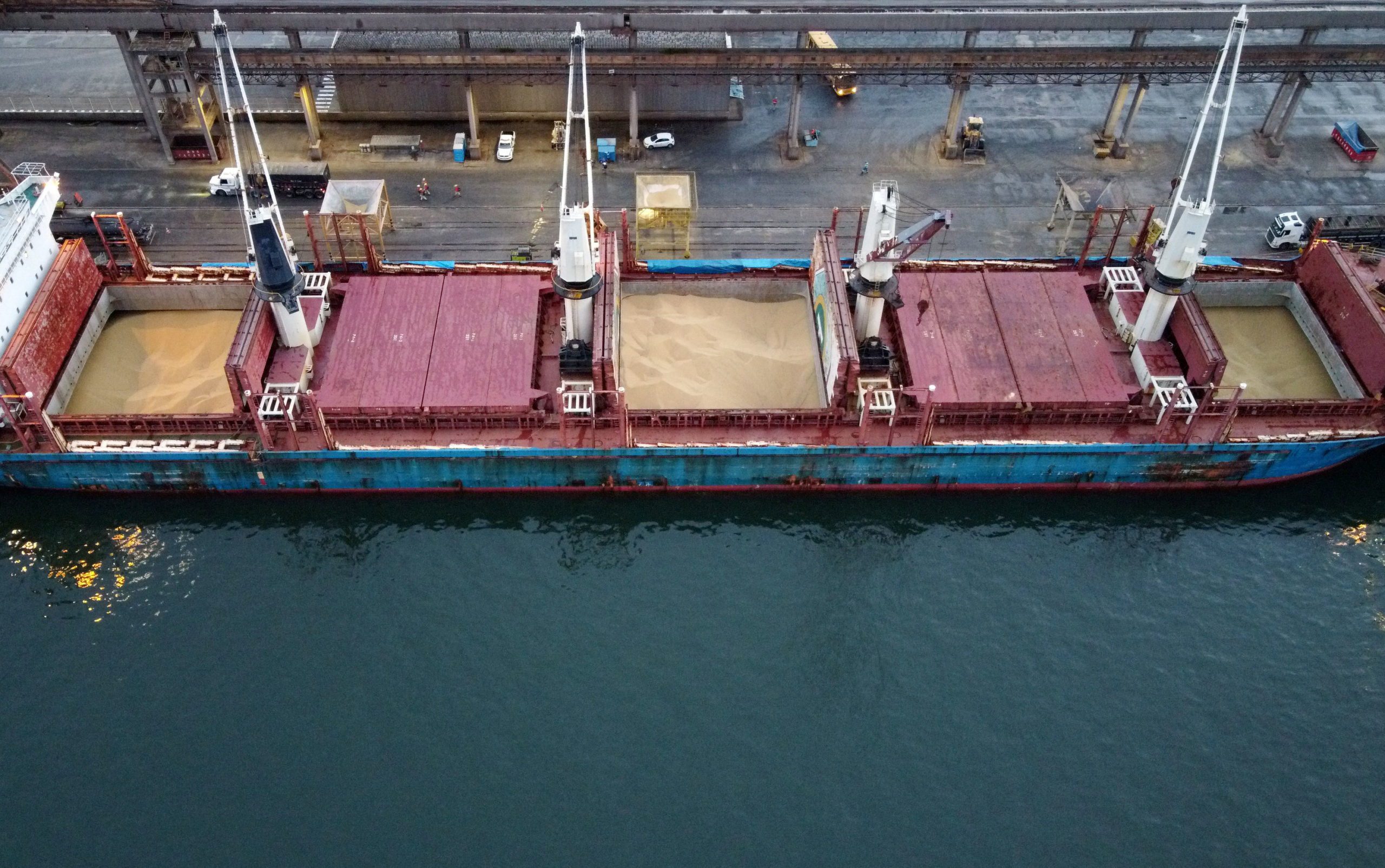A newly uncovered government disclosure has revealed a coordinated European Union effort to weaken one of America’s foundational maritime laws, including through a TikTok-style influence campaign.
At the heart of this initiative is IBF Connect SA, a Brussels-based company that operates under the supervision of the EU delegation to the United States in Washington D.C. The company specializes in organizing events and projects for various EU institutions.
Plans for the campaign are revealed in a recent Foreign Agents Registration Act (FARA) declaration. The campaign aims to “facilitate the participation of companies from the European Union in the US market in both offshore wind power and dredging.” Part of this strategy includes producing two “TikTok-style” videos targeting the Jones Act—a century-old law requiring vessels transporting goods between U.S. ports to be American-built and registered.
The campaign plans to highlight alleged “negative effects” of the Jones Act, including claims of a U.S. company duopoly and increased costs.
“The European Union has long conducted outreach in the United States on the question of market access for various maritime services,” said Adriana Brassart, a spokesperson for the EU delegation. “Our interest is long-standing. For example, maritime market access services were a topic of negotiation in the Transatlantic Trade and Investment Partnership, and it remains an area of interest to European companies that provide such services. The European Union will always work towards a free, fair and open market on behalf of European companies.”
Interestingly, an earlier version of the FARA disclosure also drew attention for revealing an apparent in-kind “partnership” between IBF and the US-based CATO Institute—a political think tank known for its strong opposition to the Jones Act. The think tank has since dismissed this partnership claim as “erroneous.”
That earlier version, obtained by OpenSecrets.org, outlined specific ways in which CATO would contribute to IBF’s broader influence campaign, including cooperating on stakeholder mapping, consulting EU wind power companies about Jones Act positions, hosting a closed-door seminar, writing about the Act’s impact on offshore wind turbines and dredging, and providing scientific input for the videos.
CATO firmly denied any involvement when questioned by gCaptain, stating, “The Cato Institute is not involved with IBF Connect and has never met or worked with them.”
“We regularly work and have contact with think tanks throughout Washington, DC, on policy issues relevant to EU – U.S. relations, including with the CATO Institute,” Brassart told gCaptain in response to a question about whether it has worked with CATO on Jones Act policy matters.
Regardless of its involvement, CATO’s strong opposition on the Jones Act comes as no surprise. This week it submitted a report to the new Department of Government Efficiency (DOGE), led by Elon Musk and Vivek Ramaswamy, advocating for major reforms or complete repeal of not only the Jones Act, but also the Foreign Dredge Act, and Passenger Vessel Services Act.
The Jones Act, which has been a cornerstone of U.S. maritime policy for over a century, requires vessels transporting goods between U.S. ports to be American-built and registered. Similar protections are provided by the Foreign Dredge Act and Passenger Vessel Services Act for their respective industries.
As President-Elect Donald Trump has yet to state his position on the Jones Act, these developments show how foreign interests and think tanks like the CATO Institute are ramping up their regulatory reform efforts, potentially setting the stage for a significant maritime policy debate in the incoming Trump Administration.
Adding to the timing, it comes as Senator Mark Kelly (D-AZ) and Congressman Mike Waltz (R-FL 6th District) prepare to release their highly-anticipated Ships For America Act, aimed at strengthening America’s maritime posture on the global stage.

 Join The Club
Join The Club











